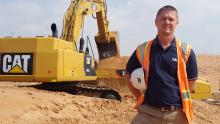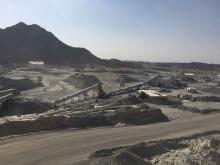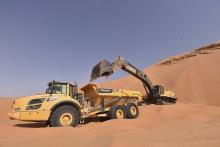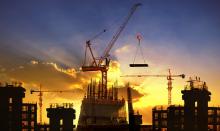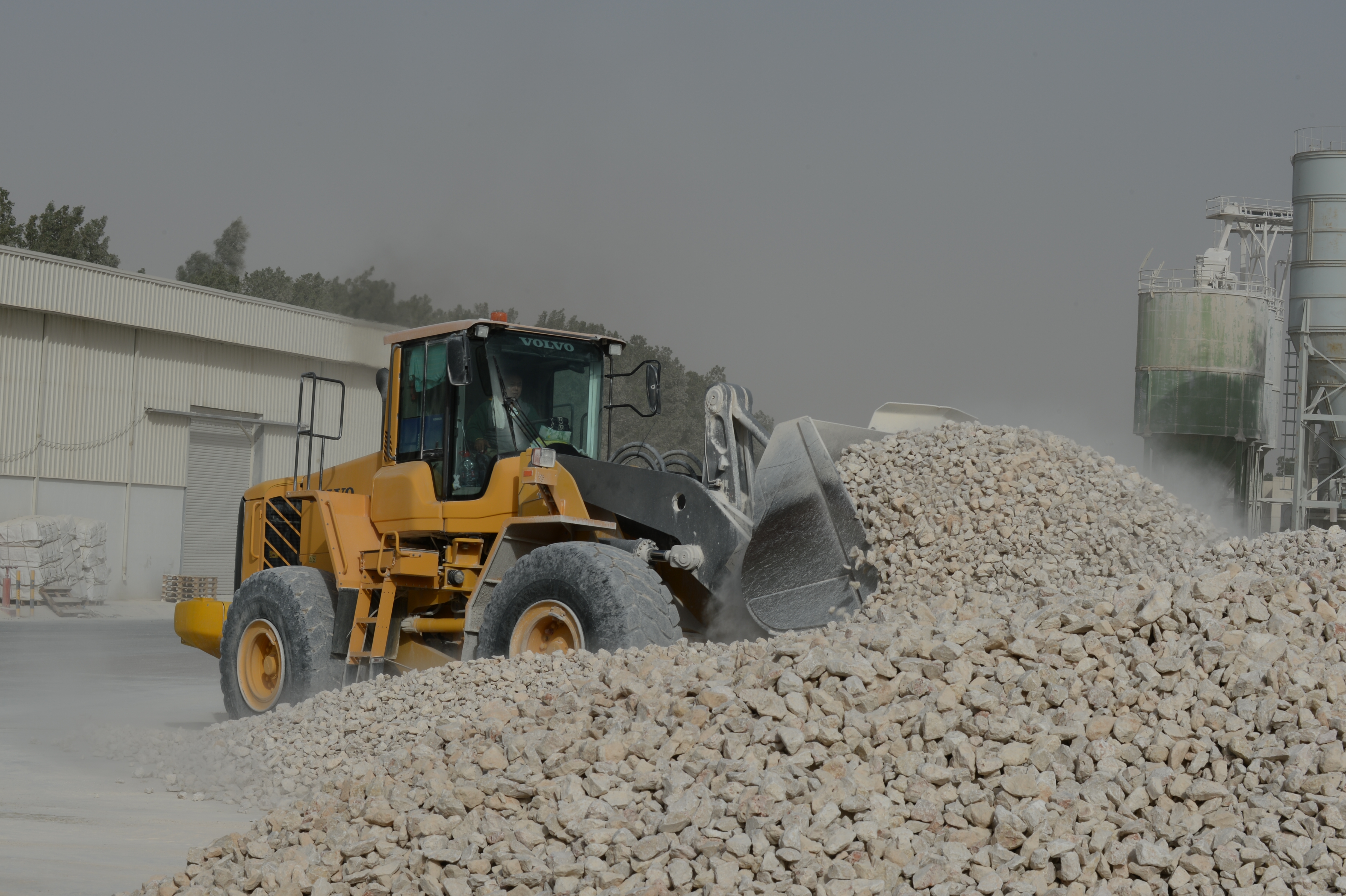
There is reasonable aggregates demand in the Middle East but it is not as great as it should be, given the region’s huge oil industry wealth and grand infrastructure ambitions. Guy Woodford reports.
Waiting for the Great Leap Forwards’ is a famous 1988 song by British singer-songwriter and political activist, Billy Bragg. This title represents a fitting metaphor for the state of Middle East aggregates demand, where ongoing regional geopolitical tensions, combined with lower oil prices leading to more fiscal prudence from nation-state rulers are somewhat subduing what is a traditionally vibrant and key regional construction market.
Euromonitor International, a leading provider of global business intelligence and market analysis, reports that growth in Saudi Arabia’s construction industry is forecast to remain flat over the 2016-2021 period, as Saudi’s budget deficit and government austerity measures are expected to keep construction industry growth at minimal level.
In 2016, the Saudi government reduced its infrastructure and transport projects budget by 62% to SAR23.9 billion (US$6.36 billion), on the back of persisting low crude oil prices, falling exports, and the consequent soaring fiscal deficit. During 2016 Saudi Arabia’s construction industry witnessed a 1.2% decline in turnover, mostly due to re-assessment of all government capital expenditure projects launched under Saudi Arabia’s Vision 2030 programme.
More positive news for global construction OEMs can be found in some major developments within the industrial, commercial and hospitality construction sectors in the kingdom, supported by economic diversification strategies and greater involvement of the private sector. Despite the challenging operating environment, work has also continued to progress well on two of Saudi Arabia’s most prestigious projects - the Riyadh Metro and King Abdullah Economic City.
Furthermore, Crown Prince Mohammed bin Salman has made impassioned calls for greater economic diversification in Saudi Arabia, including a greater role for the private sector. This could lead to new eye-catching and lucrative infrastructure opportunities that require a wealth of new construction and quarrying machinery in their delivery, along with millions of tonnes of new building materials. However, such projects are unlikely to be digger-ready for a number of years.
Volvo BM L150 and Volvo L180F wheeled loaders are used for material handling and loading duties across the site. Required to work 12-hour shifts, the equipment has proved it’s in it for the long haul with the machines passing the 50,000 hours mark in the middle of 2017. Saudi Dolomite also operates 35 Volvo on-highway trucks for shipping in addition to wheeled loaders.
Metso is another major quarrying OEM with a strong market presence in Saudi Arabia and other parts of the Middle East.
Pascal Florian, vice president of aggregates sales, marketing & service for
“UAE is still very active and Expo 2020 in Dubai will help steer demand. Oman is now reporting much better demand with new major, high cost infrastructure projects unveiled.”
Florian said that a trade and diplomatic embargo imposed on Qatar in June 2017, initially by Saudi Arabia, and subsequently by the UAE, Egypt, and Bahrain, has resulted in a “clear slowdown” of aggregates supplied to Qatar for building works. The quartet imposed the embargo after accusing Qatar of supporting terrorism.
Of the likelihood for a change in Middle East aggregates demand in the next couple of years, Florian said: “Oman will continue to steer market demand with large infrastructure projects and the development of its tourism industry. Hopefully, Saudi Arabia will take off again. Qatar, too, still needs to boost its importing of aggregates to feed enormous demand linked to hosting the FIFA Football World Cup in 2022.”
Florian said that Middle East-based aggregates sector firms had changed their approach to their work in recent years. “Companies are looking to reduce operating costs, partly through lowering their energy use. They are also looking to reduce their maintenance costs. Customers are looking for crushing and screening plants that are easier to operate and maintain. They also want new plants designed with health and safety and environment protection in mind, especially when it comes to lower dust emissions.”
Timetric is another leading provider of global business intelligence and market analysis. The company’s Project Insight - Road Construction Projects: Middle East and Africa report published in October 2017 notes that the rate of car ownership in the Middle East is likely to increase greatly in the coming decade. Accordingly, road investment is expected to more than double, to reach US$31 billion per year by 2025, providing excellent sales opportunities for global construction equipment manufacturers.
The Construction Intelligence Center (CIC) at Timetric is currently tracking road construction projects in the Middle East and Africa worth a combined US$212 billion. This includes projects from the announced to execution stages. Assuming all projects proceed as planned, spending will reach US$25.2 billion in 2019 and fall to US$15 billion in 2021. The highest value of project completions will be in 2018, with a value of US$42.8 billion.
The lifting of international sanctions on Iran in 2016, after the IAEA, the international nuclear watchdog, confirmed that the country had complied with a deal designed to prevent it developing nuclear weapons, created eye-catching new trade possibilities for global businesses, including global construction and quarrying OEMs and global aggregates product suppliers.
Indeed, Timetric tips the Iranian construction industry to recover in the years 2017–2021, following a 2012-2016 slump, backed by the removal of international sanctions and a rise in oil production and exports.
Moreover, a rise in building permits for the construction of residential and non-residential buildings in Iran is expected to support the construction industry’s growth over the forecast period. Total construction permits issued in urban areas increased by 12.1% in financial year (FY) 2016–2017, going from 101,500 units in FY2015–2016 to 113,800 units in FY2016–2017.
The late 2017-early 2018 public demonstrations in Iran, initially focusing on the economy and subsequently on Iran’s clerical leaders, during which a number of people tragically died, were the largest since the 2009 uprising over the disputed presidential election. It remains to be seen whether this leads to any lasting political and social change impacting on the attractiveness of the country to global trading construction equipment manufacturers.
Increased construction spending in developing economies such as the Middle East and India is an important factor behind rising global demand for construction aggregates, according to Future Market Insights (FMI), a leading independent business market analysis consultancy. FMI’s new study Global Construction Aggregates Market: Industry Analysis and Opportunity Assessment, 2016–2024, says the global construction aggregates market is set to expand at a CAGR (compound annual growth rate) of 6.1% in the period 2016-2024, reaching a market value of US$468.2 billion by 31 December 2024.
Kuwait is among the Gulf countries with a growing construction sector – creating attractive business opportunities for building materials suppliers and construction and quarrying OEMs. Kuwait’s delivery of key infrastructure projects and investment in healthcare, educational facilities and new housing projects will, says Timetric, contribute to the future growth of the nation’s construction industry. Furthermore, the country’s Vision 2035, under which the government aims to develop the country’s road, rail, airport and related infrastructure, is also expected to drive construction equipment demand.
Like Metso’s Pascal Florian, Timetric also notes the huge potential for construction sector growth in Oman, citing its rulers awarding US$220 million worth of road construction, dam and port projects without major international investment.
Oman-based Al Asriyah Marble Company recently invested in a water treatment and sludge dewatering plant solution from Italian company Fraccaroli and Balzan (F&B) as part of an overhaul of its stone materials processing capabilities, as the firm looks to meet rising domestic and international demand for its products.
The growth of Kuwait and Oman’s construction sectors, and the ongoing health of UAE’s construction industry, show that not all Middle East nations have been left waiting for the great leap forwards in their aggregates demand.

